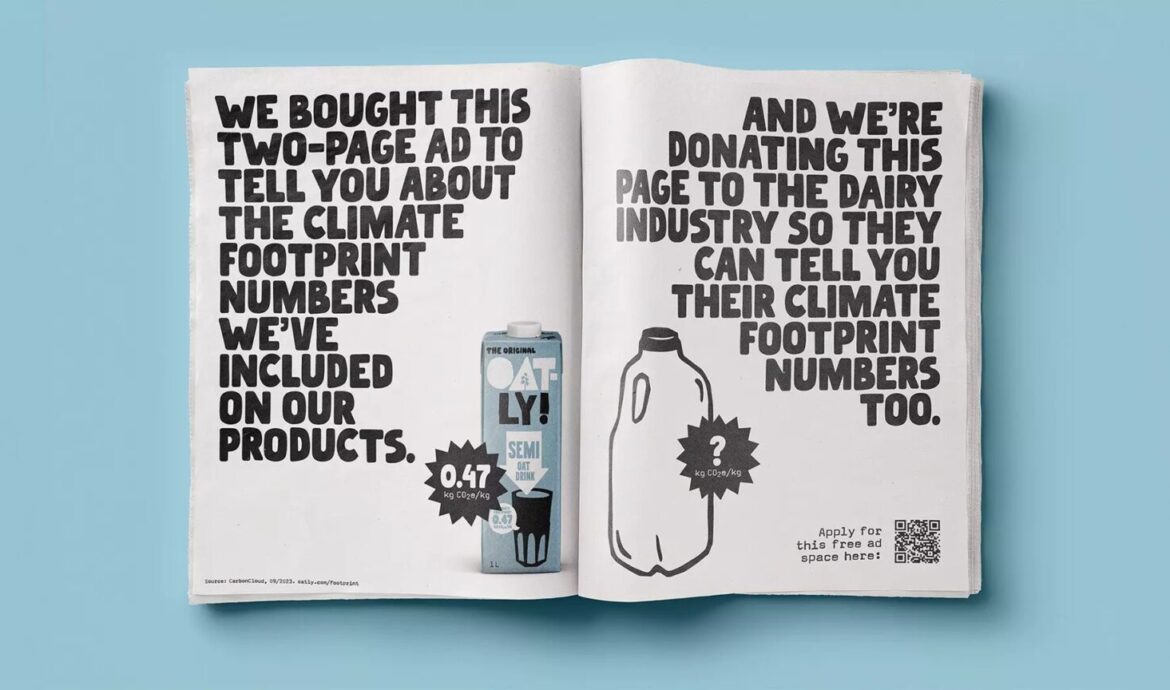
Greenwashing in the Consumer Products Industry: The Need for Stronger Federal Guidelines
October 17, 2024Feature Article(Source)
On September 18, 2024, the Environmental Working Group, an environmental advocacy organization, sued Tyson Foods for making misleading representations regarding Tyson’s goals to reach net zero carbon emissions by 2050 and their plans to start producing “climate-smart beef,” when they had not disclosed any concrete plans to achieve these goals. The lawsuit was filed in Washington D.C., under a consumer protection law that allows interest groups to sue companies for false advertising claims.
Similarly, Earth Island Institute, a non-profit environmental group based in Berkeley, CA, sued Coca-Cola for writing a misleading tweet that read, “Business and sustainability are not separate stories for the Coca-Cola Company—but different facets of the same story.” The District of Columbia stated that Earth Island had made a “facially plausible misrepresentation claim” and wrote in its opinion that Coca-Cola had misled consumers into believing that they were an “environmental steward.”
Such lawsuits demonstrate a common phenomenon often referred to as “greenwashing,” the act of making false or misleading statements about the environmental benefits of a product or practice. Corporations commonly engage in greenwashing to create the perception of environmental sustainability without committing to the financial investments needed to become truly eco-friendly. In the US, greenwashing has become a prominent issue among companies, with approximately 68% of corporate leaders estimated to engage in greenwashing practices. Although environmental, social, and governance (ESG) litigation has always included corporate greenwashing claims, recently, there has been a growing focus on greenwashing claims involving consumer products. Due to the increasing prominence of greenwashing litigation, it has become important to ask whether or not current federal regulations are doing a sufficient job of deterring such deceptive marketing practices.
How is greenwashing currently regulated?
Under federal law, greenwashing is regulated through Section 5 of the FTC Act, as well as the FTC Green Guides. Section 5 of the FTC Act, or 15 U.S.C. Sec. 45(a), is a federal statute that prohibits “unfair methods of competition.” The statute defines unfair competition as “any conduct that would violate the Sherman Antitrust Act or the Clayton Act.” The Green Guides, on the other hand, are non-binding marketing guidelines that were first developed by the FTC in 1992 to help marketers avoid misleading consumers when making environmental claims related to their products. The Green Guides were subsequently revised in 1996, 1998, and 2012, with a new revised update soon to be announced this year. The guides include: (1) general principles that apply to all environmental claims, (2) how consumers are likely to interpret these particular claims and how marketers can substantiate these claims, and (3) how marketers can qualify their claims to avoid deceiving consumers. Although the Green Guides are simply guidelines and are not legally binding, they still describe the kinds of claims that the FTC may find deceptive under Section 5 of the FTC Act, meaning that if a company violates the principles of the Green Guides, they may be subject to legal action under Section 5. This article will focus on the issues surrounding the current Green Guides and the FTC’s efforts to revise them for the upcoming 2024 update.
What are the issues with the current Green Guides?
A significant drawback of the current Guides is that it fails to provide any guidance on how to define environmentally vague terms such as “sustainable,” “natural,” and “organic,” which are terms that marketers often use to describe the environmental benefits of their products. Section 260.4 of the Green Guides simply recognizes that consumers have difficulty interpreting “unqualified general environmental benefit claims” and the section advises marketers to use “clear and prominent qualifying language” that limits the scope of the claim to specific benefits. For example, the term “eco-friendly” would be deceptive if used alone to describe a product’s packaging, but the term would not be deceptive if qualified with certain terms such as, “eco-friendly, made with recycled materials,” and if the marketer substantiated its claims with evidence demonstrating that their packaging was mostly made with recycled materials. However, this section still fails to specifically address how marketers should define vague environmental terms; nor does it provide sufficient guidance on how to use these terms in a non-deceptive manner.
In fact, the FTC opened this issue for public comment back in 2023 in preparation for the 2024 update, when it claimed it needed more guidance on how to define such terms. The FTC noted in a press release that they did not have sufficient expertise to provide meaningful guidance on these terms, and that they purposely avoided addressing these terms due to the concern that their guidelines would conflict with those of other agencies.
The lack of guidance on how to define the term “recyclable” is also another drawback of the current Green Guides that has been the focus of criticism among many policymakers. On May 25, 2023, several US Senators drafted a letter to FTC Chair Lina Khan, proposing several changes for the new updated Green Guides. Specifically, the senators urged the FTC to address claims made by companies that packaging is made from “recycled materials” and suggested that the updated guides specify what criteria should be met for a product to qualify as “recyclable.”
The Guides’ lack of guidance on how to define environmentally vague terms is problematic because it invites the opportunity for companies to find loopholes, allowing them to continue making vague, unsubstantiated claims to sell and market their products. This often leads to billions of dollars being spent on greenwashing litigation, which can be easily prevented by having companies follow clear guidelines and rules on how to use environmentally vague terms to market their products. And without a doubt, the Guides’ lack of clarity puts even more pressure on consumers to initiate lawsuits and engage in a time-consuming and costly litigation process; it is important to remember that companies may have the resources to bear these costs, while consumers do not.
How should the Green Guides be revised?
The revised Green Guides should be designed to foster transparency, accountability, and trust between companies and consumers in an increasingly eco-conscious market. Although the FTC has not yet announced when the 2024 updates to the Green Guides are to be released, it would be best if the updated guides could provide clearer guidelines on how marketers should be defining environmentally vague terms. Doing so would provide greater clarity for marketers, help them avoid deceptive marketing practices, and would better protect consumer interests by lifting the burden on them to engage in costly litigation.
Suggested Citation: Alice Kang, Greenwashing in the Consumer Products Industry: The Need for Stronger Federal Guidelines, Cornell J.L. & Pub. Pol’y, The Issue Spotter, (Oct. 17, 2024), https://jlpp.org/greenwashing-in-the-consumer-products-industry-the-need-for-stronger-federal-guidelines

Alice Kang is a second-year law student at Cornell Law School. Prior to law school, she received her B.S. in Communication at Cornell University in 2021. Aside from her involvement with Cornell Law School’s Journal of Law and Public Policy, Alice is also an Honors Fellow for the 1L Lawyering Program and is also a member of Business Law Society and the Asian Pacific American Law Student Association.
You may also like
- November 2024
- October 2024
- April 2024
- March 2024
- February 2024
- November 2023
- October 2023
- April 2023
- March 2023
- February 2023
- January 2023
- December 2022
- November 2022
- October 2022
- May 2022
- April 2022
- March 2022
- February 2022
- January 2022
- December 2021
- November 2021
- October 2021
- May 2021
- April 2021
- March 2021
- February 2021
- January 2021
- November 2020
- October 2020
- September 2020
- August 2020
- July 2020
- June 2020
- May 2020
- April 2020
- March 2020
- February 2020
- January 2020
- November 2019
- October 2019
- September 2019
- April 2019
- February 2019
- December 2018
- November 2018
- October 2018
- September 2018
- March 2018
- February 2018
- January 2018
- December 2017
- November 2017
- October 2017
- September 2017
- May 2017
- April 2017
- March 2017
- February 2017
- December 2016
- November 2016
- October 2016
- April 2016
- March 2016
- February 2016
- January 2016
- December 2015
- November 2015
- October 2015
- June 2015
- May 2015
- April 2015
- March 2015
- February 2015
- January 2015
- December 2014
- November 2014
- October 2014
- August 2014
- March 2014
- February 2014
- January 2014
- December 2013
- November 2013
- October 2013
- September 2013
- May 2013
- April 2013
- March 2013
- February 2013
- January 2013
- December 2012
- November 2012
- October 2012
- September 2012
- June 2012
- April 2012
- March 2012
- February 2012
- January 2012
- December 2011
- November 2011
- October 2011
- September 2011
- August 2011
- April 2011
- March 2011
- November 2010
- October 2010
- September 2010